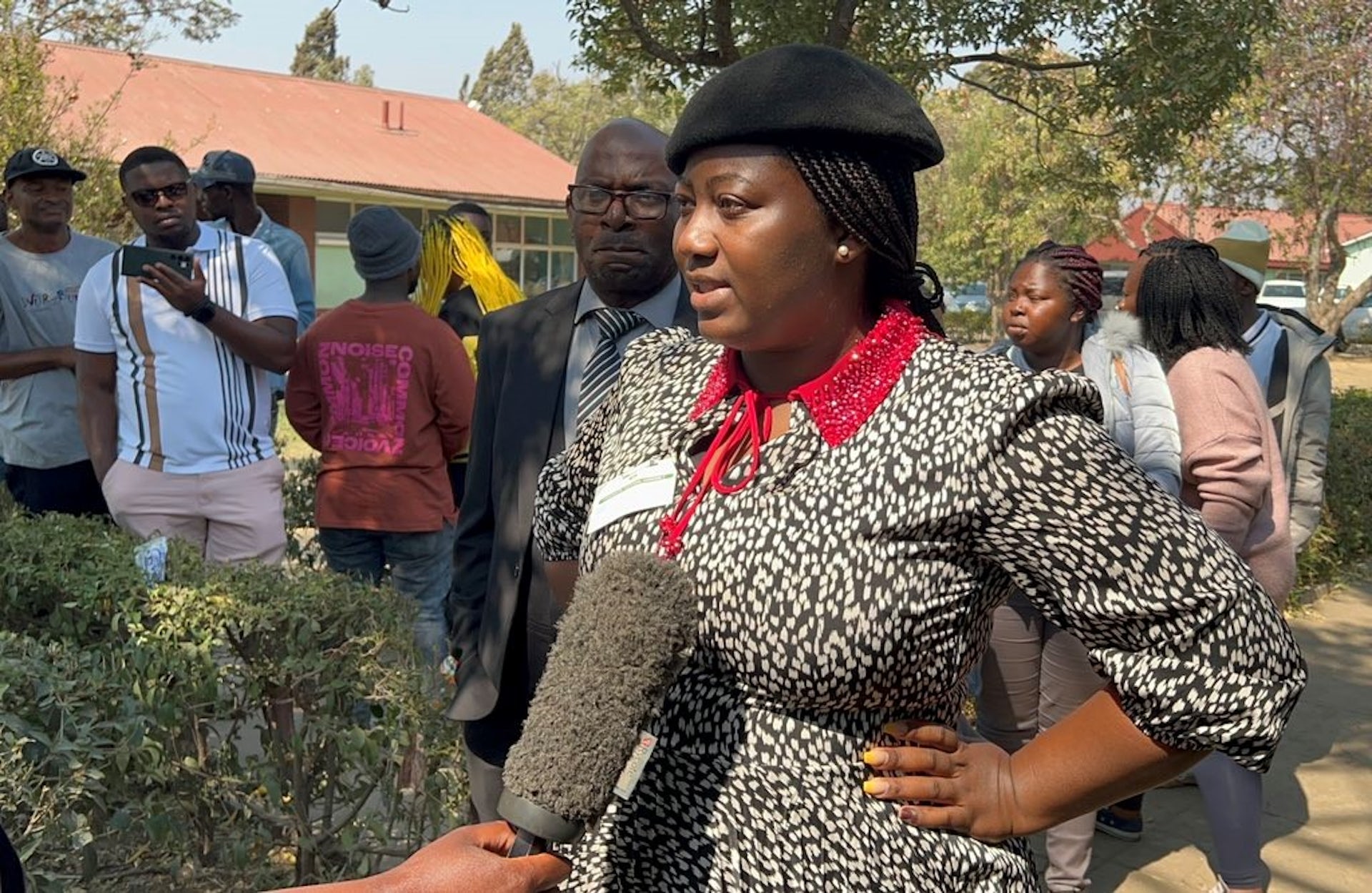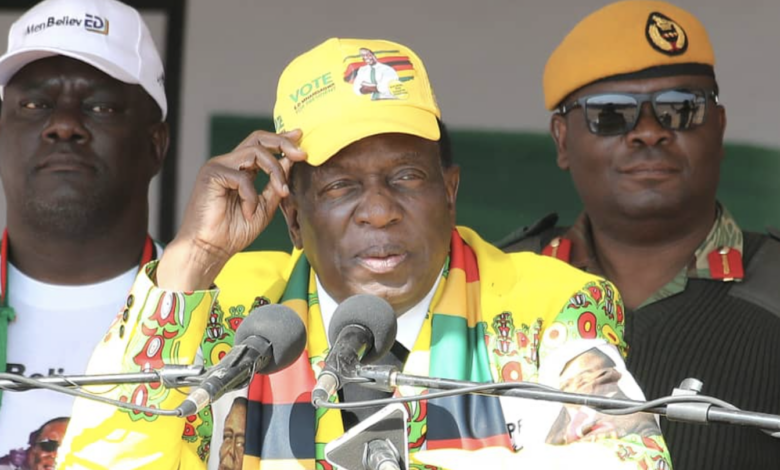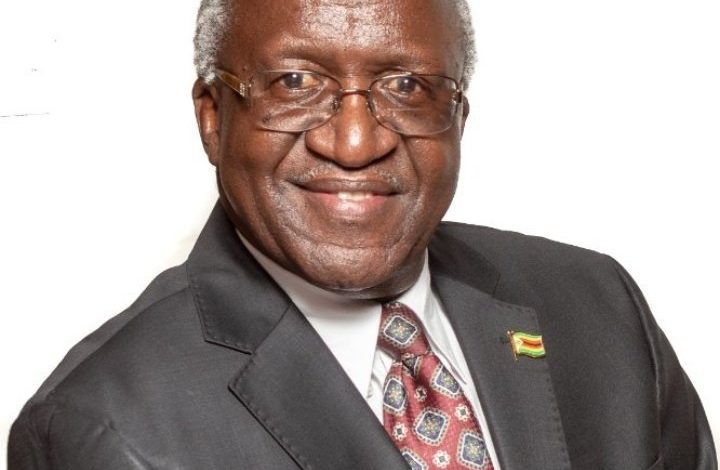Women’s representation in Zimbabwe’s parliament has declined in spite of a quota imposed in 2013.
Source: Zimbabwe’s election was a fight between men – women are sidelined in politics despite quotas

Joanah Mamombe, MP Elect for Harare West constituency, addresses media at a polling station. © Joana Mamombe/provided by author
Diana Højlund Madsen, The Nordic Africa Institute and Shingirai Mtero, The Nordic Africa Institute
Zimbabwe’s 2023 harmonised elections have largely been depicted as a battle between the two “Big Men” – President Emmerson Mnangagwa of the ruling Zanu-PF and Nelson Chamisa of the leading opposition party, the Citizens Coalition for Change (CCC). Significant media attention focused on the uneven playing field between the ruling party and the opposition.
The election results announced on the 26 August are being disputed due to reports of delayed voting, voter intimidation and ballot paper irregularities. Mnangagwa has been announced as the official winner of the presidential poll, but the CCC has rejected these results.
Another concern distinct to this election was the stark decline in the number of women candidates nominated by the main political parties for direct election.
We are working on a three year research project with a focus on the representation of women in politics in Ghana, Kenya and Zimbabwe as well as gendered electoral violence. This project seeks to explore barriers to women’s participation in politics in Africa and pathways forward, initially researched in the book Gendered Institutions and Women’s Political Representation in Africa.
Zimbabwe ranks low in measures of gender parity in southern Africa. South Africa, Namibia and Mozambique boast 46%, 44% and 42% women’s participation in parliament, respectively. Zimbabwe’s political parties need to field more women for direct election, outside the confines of the quota, in order to reach gender parity.
Gender quota
Zimbabwe’s constitution in 2013 introduced a gender quota to ensure the equitable representation of women in parliament. Zimbabwe’s parliament is composed of a National Assembly (lower house) and a Senate (upper house). The quota requires that the lower house reserve 60 of its 270 seats (22%) for women representatives. The upper house is to appoint 60 of its 80 senators from a list that alternates between female and male candidates, called the “zebra-list”.
The purpose of the quota is to push the country towards gender parity – 50/50 female/male representation – as directed by the 2003 Maputo Protocol and the Southern African Development Community’s 2008 Protocol on Gender and Development.
However, women’s representation in Zimbabwe’s parliament has declined since 2013, in spite of the quota. In 2013 women made up 33% of the National Assembly and 48% of the Senate. Only 12% of these women were elected directly. In 2018 the numbers in the National Assembly and Senate fell to 31% and 44%, respectively.
There was a significant decline in the number of women nominated to contest the 2023 elections. Only 68 (11%) of 633 aspiring parliamentarians for direct election were women.
In spite of these challenges, 23 women were elected into parliament (against 26 in 2013 and 25 in 2018). The 23 newly elected women will be added to the 60 women appointed through the quota, making a total of 83, or 30.7% representation of women, in the lower house. After the appointment of senators, as stipulated by the constitution, the number of women in the full parliament will increase. Though commendable, this still places Zimbabwe below average within the region.
These gains may fail to go beyond the 31% representation achieved in 2018. The women in the National Assembly will still be less than 50% of parliamentarians and have limited decision making powers. Moreover, there is little indication of the substantive impact these women will have to empower Zimbabwean women, considering their limited numbers. The country’s record of democratic deficits is another important challenge.
The newly elected women MPs may have limited room for manoeuvre to promote gender equality in this political context. But they are still important as decision makers, legislators and role models for other women to enter politics.
Looking beyond the quota
A gendered audit of the published list of nominated candidates for direct elections reveals that Zimbabwe’s political parties did not field enough women to reach gender parity in 2023.
Data shows that 633 registered candidates contested 210 seats through direct election. Of these candidates only 68 were women. That is, only 11% of aspiring parliamentarians for direct election were women. Of these 68, Zanu-PF fielded 23 women (34%), the CCC fielded 20 (29%), and the remaining 25 women were from small minority parties (27%) and independent candidates (10%).
Harare and Bulawayo provinces nominated the highest number of women candidates for election. In Mashonaland Central only one woman was nominated across 18 constituencies. Only two women were nominated in Matebeleland South across 12 constituencies.
It is important to ask why political parties are not fielding more women for direct election. And what this means for the future of representative politics in Zimbabwe.
Gender bias within political parties
The data above indicates a bias against woman candidates that permeates across political parties. Apart from the women nominated through the obligations of the quota, neither the CCC nor Zanu-PF fielded enough women to make gender parity a reality in the 2023 elections.
The active exclusion of women from politics is driven by gendered prejudices. These are informed by social, cultural and religious beliefs rooted in patriarchal values that view women as inherently weak and untrustworthy.
The threat and use of violence against women candidates continues to be used to coerce and discourage women from contesting elections. As argued by Zimbabwean scholars Sandra Bhatasara and Manase Chiweshe,
patriarchy, intertwined with the increase in militarised masculinities, is producing exclusion with limited spaces for women’s participation.
A negative perception is also linked to “quota women” as they were not elected by “the people”. These women are often subjected to elite patriarchal bargaining. They primarily serve the needs of their party, rather than representing Zimbabwean women.
Gatekeeping
The presence of a gender quota system provides a facade of progress. This conceals the stark reality that neither the CCC nor Zanu-PF is committed to increasing women’s representation outside the confines of the quota. Political parties function as “election gatekeepers”. They determine the level of women’s inclusion in representative politics, outside the quota system.
The number of women elected indicates that, unlike in past elections, Zimbabweans seem more willing to vote for women representatives. Political parties should build on these small gains and nominate more women for elections. This will allow the country to move closer to the goals of gender parity, gender equality and democratic plurality.![]()
Diana Højlund Madsen, Senior Gender Researcher, Nordic Africa Institute, Uppsala, Sweden, The Nordic Africa Institute and Shingirai Mtero, Postdoctoral Researcher, The Nordic Africa Institute
This article is republished from The Conversation under a Creative Commons license. Read the original article.

